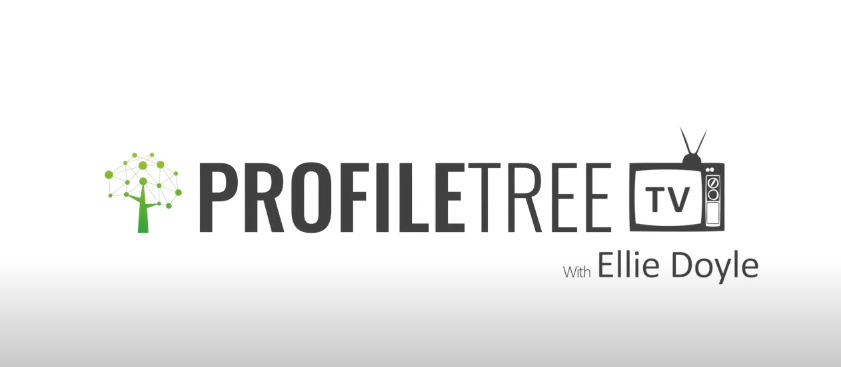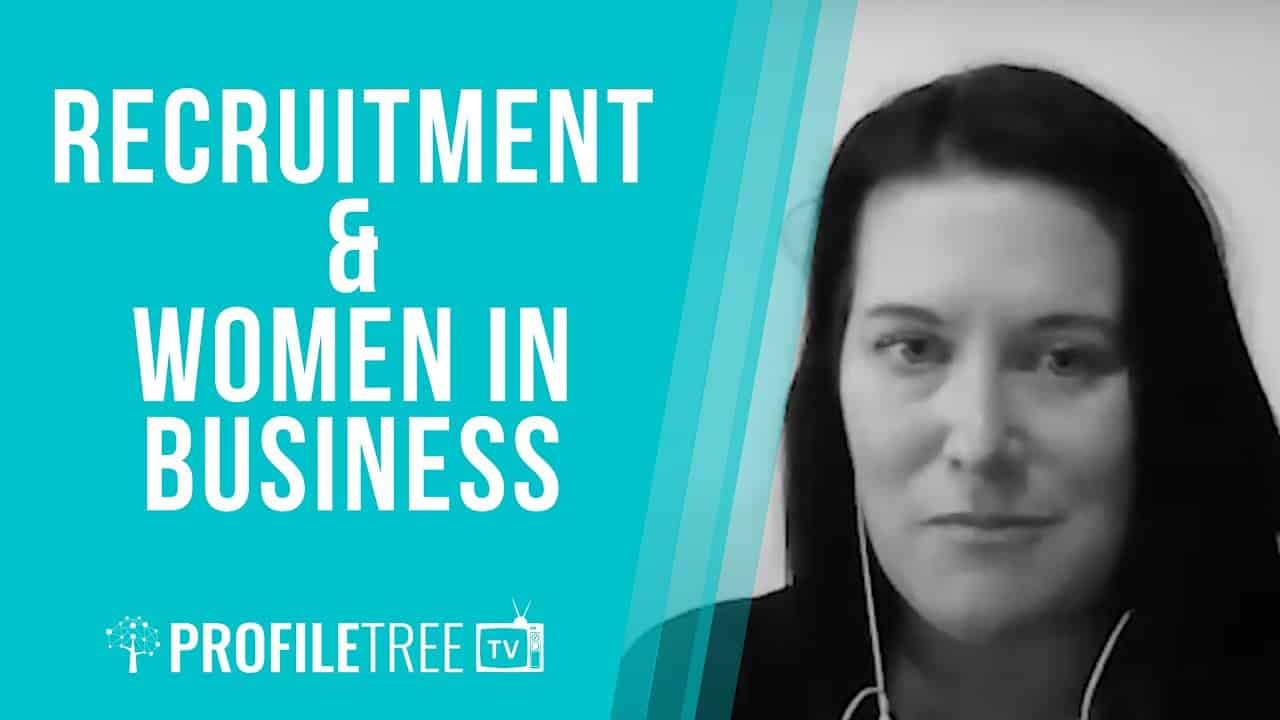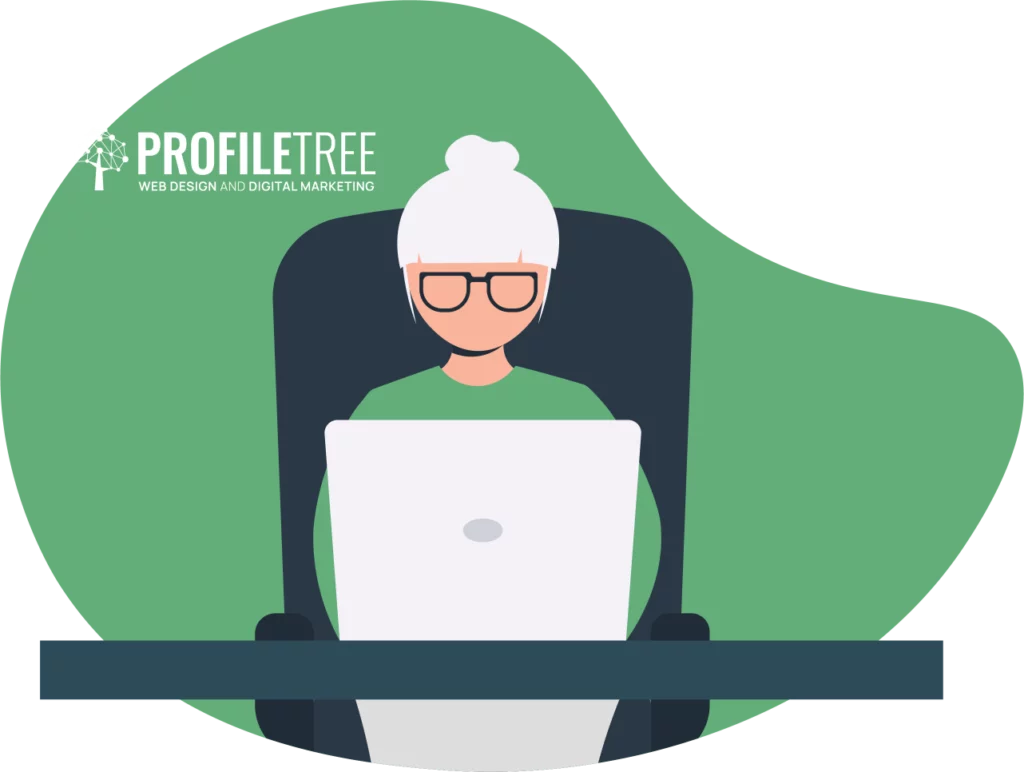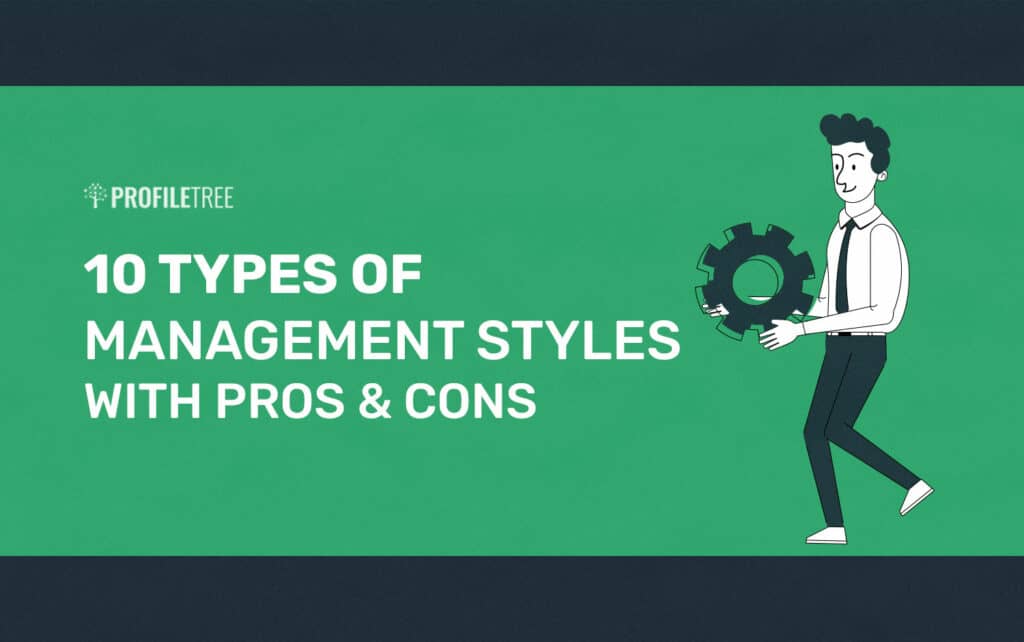Recent months have transformed the world of work and business beyond recognition. The outbreak of the Covid-19 pandemic has plunged the global economy into a period of real uncertainty, with UK jobless claims soaring by over 70 percent in April and vacancies falling with over half. The story across Ireland is extremely similar, and with this in mind we caught up with TalentHub’s Ellie Doyle to talk about the impact of the virus on recruitment, business and life for the foreseeable future.
Kicking off our discussion, Ellie takes us on a brief walkthrough of her own career and professional background. She introduces herself as a Co-Founder and Board Director at TalentHub, a recruitment consultancy based in Dublin which recently celebrated its fifth birthday. The consultancy offers a range of solutions including permanent recruitment, flexible talent solutions and advisory services around workforce planning, market mapping and more. Finally, the TalentHub has recently launched a coaching and mentoring business – something that has become even more relevant under the current circumstances.
Table of Contents

A Cloud’s Silver Lining
TalentHub specialises in sourcing digital talent, including roles in design, marketing and more. Notably, Ellie highlights that despite the circulation of negative and worrying headlines, digital may emerge from the pandemic with new and exciting opportunities. However, rather than staying ahead of the curve, digital is simply reacting to a situation in which it is more comfortable. “Let’s be honest, a lot of recruitment is on temporary hold. There’s no denying the recruitment and hiring freezes. Luckily for us, we work with innovative teams that weren’t that phased about things like remote working,” explains Ellie.
The recruitment specialist highlights that over the past couple of months, staff at the TalentHub have taken on new roles as educators to their clients, with many seeking assistance around remote working, webcam meetings and more. “We say that regardless of whatever digital platform you decide to use, we can make this work. Some people are used to this style of work, yes. But it’s still a huge change.”
Like all businesses, the TalentHub has strived to adjust to the pandemic, adapting elements of its business towards getting clients what they need. “For example, we would’ve previously been weighed towards permanent recruitment. The client still has that need for recruitment, but they need more flexibility around headcount and managing costs,” she shares. “So, we’ve had to guide them on achieving this through contractors, or offshoring work to the likes of Romania. We’ve had to move really fast, and we’re pleasantly surprised by how well the market has adapted, given that it has had no choice.”

According to Ellie, eCommerce is seeing a huge trend of growth following the outbreak of the virus. “We deal with a lot of retailers, and for some of them, eCommerce delivered 10-12% of turnover, and was largely there because certain people wanted it,” she says, “and now it’s changed, and eCommerce now delivers 100% of turnover. We’re getting calls from businesses asking us to sort out their digital capabilities, and we think there will be a huge increase in digital transformation and things like cyber securities in future months.”
Changing the Culture of Recruitment
It is true that the pandemic is pushing the consumer away from cash and physical currency. Equally, however, the pandemic is pushing employers towards allowing their employees new levels of flexibility. Ellie highlights the example of a wheelchair user who was previously forced to make employment decisions based upon whether they could access the premises via bus, or whether those premises had sufficient accessibility. “He was vindicated in his belief that we don’t actually have to be like worker ants, all getting on the same buses and train lines every morning to go to the same offices.”
For Ellie, examples like this suggest the ushering in of a new attitude towards recruitment and work. She also highlights the traditional challenges faced by autistic and non-neurotypical professionals, where office environments may not be well-suited to them. “We hope that in future, people like this who are best for the job will be the successful applicant. The jobs will go to who is best for the job”, she explains, suggesting that the recruitment industry may be prepared to embrace these changes in a post-Covid world. “Let’s not go back to the old – let’s go back to better.”
Recruitment isn’t Ellie Doyle’s only passion, however. She is also the founder of the Leaders Hub, which promotes a 50/50 gender split. “I’m really passionate about women getting the same opportunities, and we do have some way to go in Ireland. A recent report in the Sunday Independent discussed how gender-segregated education is having a profound impact on the career decisions made by women. At leaving cert physics, only 4% of those sitting the exam were female. That is so wrong when you consider that physics is such an important subject,” she explains.
What comes next for the team at TalentHub? “We#ll still provide the client with the same service, but we’ll just deliver it in a different way. We will still be delivering all of our solutions – just not from our offices all of the time!”
*Those wishing to learn more about Ellie and the journey of TalentHub can connect with Ellie on LinkedIn, as well as by visiting the official website.*

Our interview with TalentHub’s Ellie Doyle is our latest remote discussion for ProfileTree’s Business Leader series, recently recognised with the Best Content Marketing Award at the inaugural Irish Content Marketing Awards. To pitch your business or organisation to the series or to discover how video marketing and digital strategy can transform your online business, get in touch with our expert team today.
Why Gender Diversity Matters for Business Success
Promoting gender diversity in the workplace isn’t just about fairness and social responsibility; it’s a smart business strategy backed by compelling research and tangible benefits. Here’s why gender diversity matters for your company’s success:
Financial Performance:
- Increased profitability: Studies consistently show a positive correlation between gender diversity and financial performance. McKinsey & Company found that companies with greater gender diversity on their executive teams had 21% higher profitability than those with less diversity. Similarly, Credit Suisse Research Institute discovered that companies with more women on their boards had higher returns on equity and total shareholder return.
- Enhanced innovation: Diverse teams with a range of perspectives and experiences are more likely to generate creative solutions and drive innovation. A Deloitte study revealed that companies with high-performing teams report greater levels of gender diversity. This translates to new product ideas, improved problem-solving, and a competitive edge in the marketplace.
- Stronger risk management: Gender-diverse teams bring different approaches to decision-making, leading to a more balanced and thorough analysis of potential risks. A study by Credit Suisse Research Institute found that companies with at least one woman on their board were less likely to experience financial distress.
Benefits of Diversity:
- Attracting and retaining top talent: Companies with strong diversity and inclusion practices are viewed as more attractive employers by both men and women. This allows them to attract and retain top talent, leading to a more skilled and engaged workforce. A Glassdoor study found that 67% of job seekers consider a company’s commitment to diversity before accepting a job offer.
- Improved employee engagement and productivity: When employees feel valued and respected for their unique contributions, they are more likely to be engaged and productive. A McKinsey & Company report found that companies with diverse leadership teams have 17% higher productivity levels.
- Enhanced understanding of customers: A diverse workforce better reflects the customer base in the real world. This allows companies to develop products and services that resonate with a wider range of consumers, leading to increased market share and customer satisfaction.
Examples:
- Hewlett Packard: After implementing diversity initiatives, HP saw a 30% increase in innovation and a 21% increase in profit.
- EY: When EY made diversity a strategic priority, they saw a 47% increase in revenue from diverse client segments.
- Accenture: By focusing on gender diversity, Accenture achieved a 10% increase in shareholder returns.
Beyond the data, consider these additional perspectives:
- Innovation thrives on diverse perspectives: When different viewpoints and experiences are present, there’s a greater chance of challenging assumptions and sparking groundbreaking ideas.
- Stronger decision-making: Diversity in the decision-making process leads to a more comprehensive analysis of potential outcomes and reduces the risk of groupthink.
- Ethical considerations: Promoting gender diversity aligns with values of fairness and equal opportunity, contributing to a positive corporate image and social responsibility.
Challenges Facing Women in Recruitment and Business:
Women in recruitment and business face a significant number of challenges that hinder their progression, career satisfaction, and overall contribution to the industry. Let’s delve deeper into three key obstacles:
1. Gender Stereotypes and Unconscious Bias:
- Preconceived notions: Recruitment and business are often perceived as fields dominated by masculine qualities like assertiveness and decisiveness. Women may be stereotyped as lacking these traits, leading to biases against them in hiring and promotion decisions.
- Blind spots: Unconscious bias, subtle and unintentional prejudices, can negatively impact women’s opportunities. Recruiters might prioritize male candidates with similar interests and backgrounds, overlooking equally qualified women. Even well-meaning individuals can harbor unconscious biases that unconsciously influence their decisions.
- Microaggressions: Subtle discriminatory behaviors, like interrupting women in meetings or dismissing their ideas, can create a hostile work environment and undermine their confidence and credibility.
2. Lack of Female Mentors and Role Models:
- Scarcity of representation: The underrepresentation of women in senior leadership positions in recruitment and business creates a dearth of female mentors and role models. This lack of guidance and support can make it difficult for women to navigate career challenges, access professional networks, and envision themselves in leadership roles.
- Limited access to sponsors: Sponsors actively advocate for an individual’s advancement within an organization. Without access to female sponsors who can champion their skills and achievements, women may struggle to gain visibility and secure promotions.
- Breaking the glass ceiling: The “glass ceiling” refers to the invisible barrier that prevents women from reaching top leadership positions. Seeing few successful women at the helm can discourage aspiring female professionals and reinforce the perception that advancement is limited for them.
3. Difficulty Balancing Work and Family Responsibilities:
- Unequal share of domestic duties: Societal expectations often place a disproportionate burden of childcare and household responsibilities on women. This can create a conflict between their professional commitments and personal lives, leading to work-life balance challenges.
- Lack of family-friendly policies: Many workplaces lack flexible work arrangements, childcare support, and parental leave policies that adequately address the needs of working parents. This can force women to choose between their careers and family responsibilities, limiting their career progression.
- Negative career impact: Women who take career breaks for family reasons often face challenges upon re-entering the workforce, experiencing salary penalties, difficulty finding suitable positions, and a perception of being less committed to their careers.
Addressing these challenges is crucial for building a more inclusive and equitable environment in recruitment and business. By dismantling gender stereotypes, fostering mentorship and sponsorship opportunities, and implementing family-friendly policies, we can empower women to reach their full potential and contribute their unique talent and perspectives to the industry’s success.
Supporting Women’s Recruitment and Retention in Recruitment and Business:
Creating a truly inclusive and equitable environment for women in recruitment and business requires proactive measures beyond simply avoiding overt discrimination. Here are some effective strategies to support their recruitment and retention:
1. Implement Blind Recruitment Practices:
- Remove identifying information: Strip resumes and CVs of identifying information like names, genders, ages, and universities attended. This can help to mitigate unconscious bias during resume screening and initial interview stages.
- Focus on skills and experience: Evaluate candidates based on their skills, qualifications, and relevant experience, rather than relying on pre-conceived notions or stereotypes.
- Diversity in interview panels: Include diverse interviewers who represent different genders, backgrounds, and perspectives to ensure a more balanced assessment of candidates.
2. Provide Mentoring and Sponsorship Programs:
- Connect women with mentors: Pair aspiring women with experienced mentors who can provide guidance, career advice, and access to professional networks. Mentors can help women navigate challenges, develop their skills, and build confidence.
- Implement sponsorship programs: Identify high-potential female employees and connect them with sponsors who can actively advocate for their promotion and leadership development. Sponsors can champion their achievements, visibility, and career advancement opportunities.
- Create supportive networks: Establish communities or networking groups for women in recruitment and business to connect, share experiences, and offer mutual support.
3. Offer Flexible Work Schedules/Remote Work Options:
- Accommodate diverse work styles: Implement flexible work arrangements, including flexible hours, part-time options, and remote work opportunities, to allow employees to balance their professional and personal responsibilities.
- Prioritize results over presenteeism: Focus on measuring performance based on output and results rather than physical presence in the office. This can empower women to manage their time effectively and contribute meaningfully without compromising on productivity.
- Invest in technology: Provide the necessary tools and technology to facilitate remote work effectively and ensure seamless communication and collaboration within teams.
4. Parental Leave and Childcare Assistance Policies:
- Offer generous parental leave policies: Provide equal and sufficient parental leave for both mothers and fathers to encourage men to share childcare responsibilities more equally.
- Subsidized childcare or on-site childcare facilities: Consider offering financial assistance with childcare costs or even on-site childcare facilities to ease the burden for working parents, particularly women.
- Reintegration support: Implement programs or resources to ease the transition back to work after a parental leave, such as flexible reintegration schedules or mentorship during the reintegration period.
5. Ensure Pay Equity Through Audits:
- Conduct regular pay audits: Regularly analyze compensation data to identify and address any gender pay gaps within the organization. Transparency and data-driven approaches are crucial in ensuring fairness and equity.
- Implement clear salary bands and promotion criteria: Establish transparent salary bands and promotion criteria based on objective metrics to reduce subjectivity and potential bias in compensation decisions.
- Offer training and coaching on unconscious bias: Educate employees and managers on recognizing and overcoming unconscious bias to ensure it doesn’t influence performance evaluations, compensation decisions, or career development opportunities.
Fostering Inclusion and Belonging for Women in Recruitment and Business:
Creating a workplace where women feel genuinely included and valued goes beyond simply avoiding discrimination. It involves actively cultivating an environment that respects differences, celebrates diversity, and empowers women to fully contribute their talent and perspectives. Here are some powerful strategies to foster inclusion and belonging:
1. Combat Unconscious Bias:
- Training and workshops: Invest in comprehensive training programs for recruiters, managers, and all employees to raise awareness of unconscious bias and its impact on decision-making, behavior, and opportunities.
- Inclusive hiring practices: Utilize blind resume reviews, diverse interview panels, and objective evaluation criteria to mitigate bias during the recruitment process.
- Regularly assess progress: Conduct regular evaluations and audits to identify areas where unconscious bias might be hindering progress and implement corrective measures.
2. Build Supportive Communities:
- Employee resource groups (ERGs): Establish an ERG specifically for women in recruitment and business. This dedicated space allows women to connect, share experiences, offer support, and advocate for common interests.
- Mentorship and sponsorship programs: Pair aspiring women with experienced mentors and sponsors who can provide guidance, career advice, and advocate for their advancement within the organization.
- Employee networks and communities: Create opportunities for women to connect with colleagues across different departments and build a sense of belonging within the broader company culture.
3. Celebrate Achievements and Role Models:
- Public recognition and appreciation: Regularly acknowledge and celebrate the accomplishments of women in the workplace, highlighting their contributions to the team and the organization.
- Internal communication channels: Feature stories and profiles of successful women leaders and role models within your company through newsletters, internal platforms, or company events.
- External outreach and involvement: Sponsor or participate in events and initiatives that celebrate and empower women in recruitment and business, showcasing your commitment to diversity and inclusion.
4. Encourage Allyship and Advocacy:
- Male involvement: Encourage male colleagues to actively participate in diversity and inclusion initiatives, championing the cause of women in the workplace and challenging potential biases.
- Bystander intervention training: Train employees to speak up and intervene when they witness instances of discriminatory behavior or microaggressions, fostering a culture of respect and accountability.
- Leadership commitment: Ensure leadership demonstrably promotes and implements diversity and inclusion initiatives, making it a core value of the organization’s culture.
Remember, fostering inclusion and belonging is an ongoing journey, not a one-time fix. By continually evaluating your progress, addressing challenges, and implementing these strategies, you can create a workplace where women feel truly valued, empowered, and able to thrive.
The Importance of Women Recruiting Other Women:
A diverse and inclusive workforce fosters innovation, creativity, and better decision-making, and having more women involved in the recruitment process plays a crucial role in achieving this. Here’s a deeper look at why women recruiting other women is particularly impactful:
1. Attracting a More Diverse Candidate Pool:
- Breaking stereotypes: Female recruiters can challenge traditional ideas about who fits different roles, attracting a wider range of candidates including talented women who might not otherwise consider your company.
- Understanding different needs: Women recruiters might be more attuned to the specific needs and aspirations of female candidates, addressing concerns about work-life balance, company culture, and career development opportunities.
- Building trust and rapport: Female candidates might feel more comfortable discussing their career goals and concerns with a female recruiter, leading to more open and honest conversations.
2. Enhanced Comfort and Reduced Bias:
- Minimizing unconscious bias: Studies show that unconscious bias, favoring familiar backgrounds and experiences, can be subconsciously amplified during recruitment. Having female recruiters involved can help reduce this bias and ensure a more objective evaluation of candidates.
- Creating a welcoming environment: Women candidates might feel more at ease and confident during interviews with a female recruiter, leading to better performance and a more authentic representation of their skills and potential.
- Sharing experiences and advice: Female recruiters can provide valuable insights and career advice to female candidates, addressing potential concerns and helping them navigate the often-challenging recruitment process.
3. Leveraging Powerful Networks:
- Women supporting women: Female employees often have strong networks of talented women in their fields. By encouraging them to refer or recommend these connections for open positions, companies can tap into a rich pool of diverse talent.
- Building strong talent pipelines: Building relationships with female students and early-career professionals through mentorship programs or university outreach initiatives can lead to a steady stream of qualified female candidates in the future.
- Creating a supportive community: When women see other women in leadership positions and involved in the recruitment process, it sends a powerful message about the company’s commitment to diversity and inclusion, further attracting and retaining female talent.
Remember, having more women involved in recruitment is not about excluding men; it’s about creating a more balanced and inclusive process that benefits everyone. By leveraging the unique strengths and perspectives of female recruiters, companies can build a diverse and high-performing workforce that reflects the real world and drives long-term success.
FAQ
Q: Why is diversity in recruitment important?
A: Diversity in recruitment brings numerous benefits, including:
- Attracting a wider range of talent: Diverse teams tap into different perspectives and experiences, fostering innovation and creativity.
- Enhanced decision-making: Diverse viewpoints lead to more comprehensive analysis and consideration of potential outcomes.
- Stronger financial performance: Studies show companies with gender diversity in leadership perform better financially.
- Improved employee engagement and productivity: Inclusive workplaces lead to happier and more engaged employees, which boosts productivity.
- Stronger customer understanding: A diverse workforce better reflects the customer base, allowing companies to develop products and services that resonate with a wider audience.
Q: What challenges do women face in recruitment?
A: Some key challenges include:
- Gender stereotypes and unconscious bias: Preconceived notions and subtle prejudices can negatively impact women’s opportunities in recruitment and business.
- Lack of female mentors and role models: The underrepresentation of women in leadership positions creates a scarcity of mentorship and guidance for aspiring women.
- Difficulty balancing work and family responsibilities: Societal expectations often place a disproportionate burden of childcare and household duties on women, leading to work-life balance challenges.
Q: How can companies support women in recruitment?
A: Effective strategies include:
- Implementing blind recruitment practices: Removing identifying information from resumes helps overcome unconscious bias during initial screening.
- Providing mentoring and sponsorship programs: Connecting women with mentors and sponsors fosters career development and increases visibility.
- Offer flexible work schedules/remote work options: Accommodating diverse work styles helps women manage personal and professional responsibilities.
- Parental leave and childcare assistance policies: Generous leave policies and childcare support help reduce burdens on working parents, particularly women.
- Celebrating women’s achievements: Publicly recognizing success stories of women in the workplace inspires others and promotes inclusivity.
Conclusion
Building a truly inclusive and equitable environment for women in recruitment and business requires dedicated effort. By understanding the challenges, implementing practical strategies, and fostering a culture of support and accountability, organizations can unlock the full potential of women and reap the benefits of a diverse and thriving workforce.
Remember, it’s not just about checking boxes; it’s about creating a workplace where everyone feels valued, empowered, and able to contribute their unique talent to the collective success of the organization.


